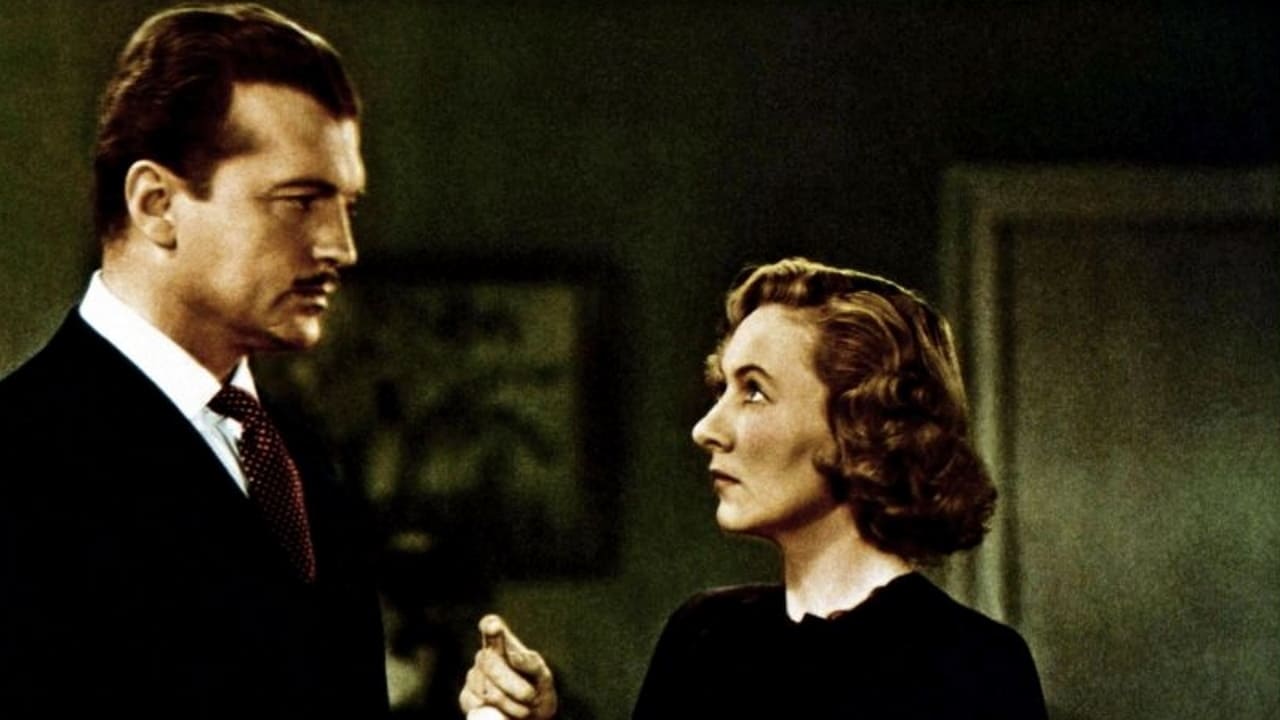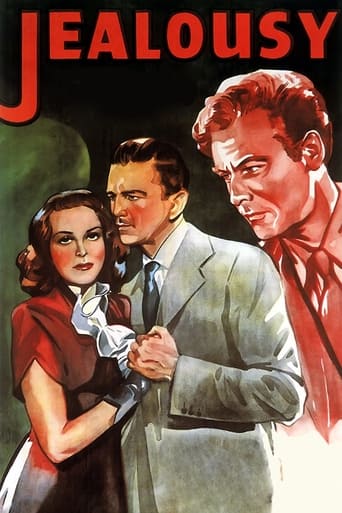

Yes, this film is greatly flawed, overwrought with clichéd, often simplistic dialog meandering through a complex plot line. It is presented in a direct fashion where the cheap production values actually add to its worth. It's not quite "Detour" or "Decoy" in its reputation as a piece of art that came off an assembly line poverty row studio. There's a lot to point at that's wrong, but in retrospect, it is an absolutely fascinating film. I pretty much figured it out early on, and rather than reveal those suspicions, I'll simply comment on the plot line as it stood in my mind and my feelings about the other aspects of it as a whole.Starting off with the monologue of Los Angeles cab driver Jane Randolph, it's obvious that she is seriously unhappy and will need to find solitude or other distractions which have made her miserable. Along comes genius doctor John Loder as a passenger, and it's an unforgettable first meeting. She subtly debates with him over which Beethoven symphony is playing on the radio. It distracts her long enough from the issues concerning her miserable suicidal husband (Nils Asther) and thanks to Loder, Asther manages to get the publishing deal he's been waiting for.Intrigue follows as Randolph confides in Loder's long suffering assistant (Karen Morley) and eventually twists and turns lead to a grizzly murder. Solving it for me at least was simple, but I was intrigued by the steps it took for me to figure it out. The conclusion too opens the thoughts up to all sorts of post film conclusions and that lead me to give this a higher ranking than I might have had this not been a B film and had been over lavished with all the trimmings.
... View MoreIn presenting this rare (and, admittedly, negligible) post-World War II melodrama (at the Pacific Film Archive in Berkeley in January of 1988) historian William K. Everson described it as "a strange and fascinating psychological thriller" and an "offbeat experimentation". High praise, indeed, for such a throwaway cheapie, but the generous assessment could have been motivated more by his sympathy for the cast and crew, several of whom were later blacklisted during the Communist witch hunts of the 1950s. The credits were subsequently removed altogether, perhaps a blessing in disguise considering the poor quality of the film: plot holes, pedestrian acting and laughable dialogue abound. With no budget to speak of and with essentially only four characters in the script (an attractive LA cab driver, her suicidal Czech husband, a debonair physician, and his plain but hard working female assistant) it probably couldn't help looking like an amateur production. But with a running time of only 70 minutes it's easy to shrug off.
... View MoreDespite such clichéd dialogue as: "...Something has come between us. What is it?" "You wouldn't dare!" "Oh wouldn't I!" and "I feel a strange foreboding," the film does manage to transcend it's pulpy romantic triangle plot.This is achieved mostly through a European influenced, "downbeat" atmosphere at odds with the conventionally optimistic American take on life, (this is light years from "It's a Wonderful Life," though both films deal with masculine bread-winner failure).Indeed, the film seems to have considerable sympathy for Nils Asther's ex-patriate European writer who, disaffected by his new environs, can't make the grade once in the states, and turns to drink and self pity.But it is through mood rather than scripting that the film earns it's keep, specifically some effective, (if occasionally heavy handed)stylistic flourishes. Thus we have an abundance of tilted camera angles, great looming shadows of creeping figures on the walls at night, dead sea gulls, repeated musical motifs--Brahms etc, (the film bears some stylistic traits in common with with "Strange Illusion")etc.Most interesting of all is the re-appearance of the same living room setting previously used in "Strange Illusion," "Fog Island" and "I Accuse My Parents." Here slightly re-dressed and reconfigured, it serves as the drawing room of John Loder's character. All of which is doubly odd, since this film is a Republic production, and makes one wonder why they were sharing sound stages and settings with rival PRC.
... View MoreEven by the bottom-shelf standards of postwar Poverty Row crime programmers (it's a Republic release), Jealousy appears primitive. Its sets look ugly and thrown together, its meandering plot line needs plenty more back-story, and its acting is more often awkward than not. But slowly maybe by dint of its very cheesiness the movie starts to work on you. It's the work, both as writer and director, of Gustav Machaty, whose most notorious film was the 1933 Extase, where Hedy Lamarr swam in the nude. But that notoriety notwithstanding, Machaty didn't make much of a mark in America; before Jealousy, he hadn't directed a movie since 1939, and afterward would wait another decade before his last film, made in Europe.To get a bead on where Jealousy is heading takes a while. We first encounter Jane Randolph wearing a visored cap and driving a hack in Los Angeles. One of her fares is debonair doctor John Loder, who takes a very English fancy to her. But she's supporting depressive Nils Asther, a displaced person from the shambles of Eastern Europe who was a noted novelist in his native tongue; in America, he's unemployable. He pawns his cigarette case to buy a gun and end it all. Randolph stops him, which proves to be a mistake.When Asther grows more jealous and abusive, Randolph warms to Loder and becomes chummy with his devoted colleague Karen Morley. (They lunch together, go shopping together, confide in one another.) But out of false pride Asther, who nurses his unhappiness like a sore tooth, spurns a job as translator at a movie studio, an opportunity arranged by his best friend Hugo Haas (yes, that Hugo Haas, another Poverty Row auteur of vanity pictures). Asther gives the restless Randolph an ultimatum: If she leaves him, he'll use the gun, but not on himself. But that damn gun sure gets around....Jealousy boils down to a romantic trapezoid. Even at an economical 71 minutes, it moves slowly. But move it does, with an occasional nice touch along the way (a Christmas ornament dropped back into its box after a grim marital spat, a wide-eyed Siamese cat taking in a climactic scene). And as it turns out, it's just a little bit better than it seems.
... View More